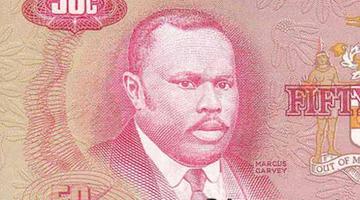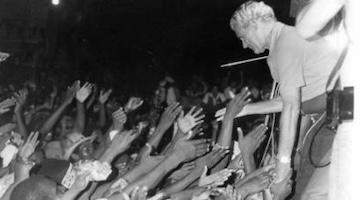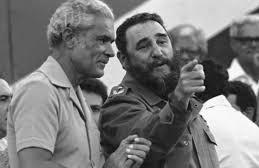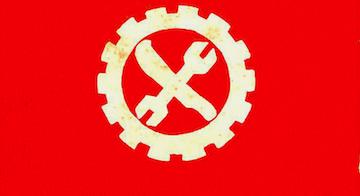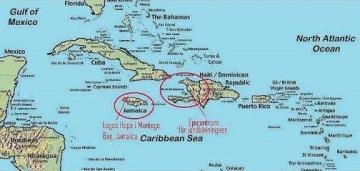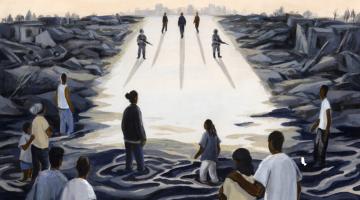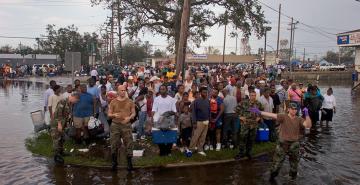The Jamaican slave revolt of 1760-1761 was one war within an interlinked network of other wars.
“The violence of imperial expansion and enslavement remade the history of Europe, Africa, and the Americas.”
In this series, we ask acclaimed authors to answer five questions about their book. This week’s featured author is Vincent Brown. Brown is the Charles Warren Professor of American History and Professor of African and African American Studies at Harvard University. His book is Tacky’s Revolt: The Story of an Atlantic Slave War.
Roberto Sirvent: How can your book help BAR readers understand the current political and social climate?
Vincent Brown: More than 100,000 Americans have been killed by the Covid-19 pandemic in 2020, exceeding the combined number of American soldiers killed in all U.S. wars since the end of World War II. Part of the reason for this shocking and humbling death toll is surely that waging war is a higher priority for the United States than the general health of its population. This is reflected in the federal budget, of course. But I think these priorities have deep roots in Anglo-American history that precede the creation of the U.S. as a nation state.
Endless war has a long history in the Americas. It is a phenomenon intimately intertwined with the imperial adventures that displaced indigenous peoples, the European competitions over colonial territories and resources, and the development of slave-based agriculture. All of these endeavors were underpinned by organized violence, which proliferated in attacks and counterattacks that linked intimate interactions with geopolitical forces.
Tacky’s Revolt illustrates how this process worked within one dense network of empire, slavery, and militancy. The violence of imperial expansion and enslavement remade the history of Europe, Africa, and the Americas, as they interacted across the Atlantic Ocean. European imperial conflicts extended the dominion of capitalist agriculture. African battles fed captives to the transatlantic trade in slaves. Masters and their subalterns struggled with one another continuously. These clashes amounted to a borderless slave war: war to enslave, war to expand slavery, and war against slaves, precipitating wars waged by the enslaved against slaveholders, but also between slaves themselves. In this sense, the Jamaican slave revolt of 1760-1761 was one war within an interlinked network of other wars, which had diverging and overlapping provocations, combat zones, political alliances, and enemy combatants.
In my first book, The Reaper’s Garden: Death and Power in the World of Atlantic Slavery, I introduced a historical method akin to epidemiology. I followed routes of cause and effect in Jamaican slave society by describing the “movement of people, cultural practices, and actions as one would analyze pathogens spreading over space and time, examining both the character of causal agents and the conditions in which they take root, thrive, or degenerate.” This approach allowed me to see the unlikely connections and associations that often escape notice in more territorially or culturally bounded histories. I think that method is more fully realized in this book. Events unfold as a result of connections that play out over territories that crossed national, imperial, and ethnic boundaries. War integrated these territories, spreading somewhat like an epidemic outbreak or a global pandemic.
Without stretching too far beyond the particular history I’m trying to tell, the book suggests that anti-black militarism is probably as important a legacy of American slavery as dispossession and racial exclusion. To put it bluntly, the militarization of policing, which has commanded a lot of recent attention, has changed over time, but there is nothing new about the underlying impulse. In the United States, our own militarism has swelled the military budget to grotesque proportions and kept us engaged across the world in conflicts that no one knows how to end. What does it mean to talk about justice, belonging, and inclusion in a country that has been perpetually at war abroad, even as the conquest and domination of those outside the circle of protection at home endures?
What do you hope activists and community organizers will take away from reading your book?
I wrote the book for historians and readers interested in history for whatever reason, whether simple curiosity, specialized research, or merely the love of a good story. There may not be any programmatic takeaways for activists and organizers. But if they tried to imagine connections or continuities between the history I tell and the struggles we face today, I hope they would see the urgency of a vibrant and robust antiwar movement. It’s usually difficult to draw direct causal connections between foreign wars and domestic troubles. Yet I cannot believe that militarism isn’t part of the explanation for why we can’t have nice things like improving infrastructure, equal rights, a greater degree of social harmony, or a decently functioning healthcare system in the U.S. It’s hard to imagine building a viable future without finding a way to end the widening gyres of violence that keep us from investing more in our collective wellbeing. No peace, no justice.
We know readers will learn a lot from your book, but what do you hope readers will un-learn? In other words, is there a particular ideology you’re hoping to dismantle?
It would be nice if readers could unlearn the idea that slaves were merely ciphers, or extensions of their master’s will. This was the ideology of slavery, but the reality was always messier. Slavery was a predicament more than a condition. Many writers prefer to use the term “enslaved persons” to remind readers that slaves were indeed human beings, with the full range of thoughts, desires, pains, and joys as any other people. But, frankly, that doesn’t solve the problem. Property ownership in human beings and distinctions between enslaved and free persons have been important in much of human history, with enormous consequences for everyone involved. The use of “enslaved persons” doesn’t change the relationship or better illuminate the process of subjecting one person to another person’s will. For me as a writer of history, language needs to describe relationships and processes as they evolve more than it needs to avoid offending our current sensibilities. More specifically, if we can see that slaves were always persons, anyway, we can use the word without fear of re-inscribing the original acts of violence through our usage. Indeed, that makes it easier to understand how masters were dependent on slaves to fulfill their own needs and desires, often in ways that compromised their own “humanity” just as that term was coming to mean something. It also keeps us from being perpetually surprised at the evidence that the enslaved led active (if informal) political lives despite being consigned to a putative status of social death.
Who are the intellectual heroes that inspire your work?
My intellectual heroes are too many to name, and if you ask at various times, depending on what I’m thinking about, I’ll give you radically different lists. Sometimes I think my writing has been most inspired by vocalists like Bob Marley, Winston Rodney, David Hinds, H.R., and Chuck D., whose songs taught me things about black history and politics that I hadn’t learned in elementary and high school. Or by Fela Anikulapo Kuti, who inspired me to write history as if it were unfolding to an insistent beat, and the funk musicians who showed how to develop a style out of the counterpoint between strict discipline and passionate pandemonium, which is what I think I’m reaching for at times.
There were, of course, great writers like C.L.R. James, whose Black Jacobins introduced me to the geopolitics of slave revolt, or Ira Berlin, whose histories of slavery showed how the institution varied and changed over time and space. I was introduced to a magnificent tradition of historical scholarship on common people by amazing mentors and peers, including my dissertation advisor David Barry Gaspar—and that’s before we even get to all the friends and colleagues who constantly me inspire me with their ideas, criticisms, and stylistic innovations.
Before all these, there are my parents, Willie and Manuelita Brown. They taught me how much dignity there is in the daily work of raising a family, making a contribution to your community, and spreading some joy in the world whenever possible. My father worked as a university scientist, teaching medical microbiology for many years at the University of California, San Diego, but he is by vocation a gardener. He grew up in rural Jim Crow Virginia, the son of a domineering Baptist preacher, but he passed on none of the harshness of his upbringing to me. Instead, having been raised with fruit trees in the yard, old and familiar houseplants in every room, and homegrown vegetables on the dining table, I inherited his love for dedicated cultivation. My mother worked for most of my childhood as a mathematics teacher, but is now a sculptor, creating bronzes that often take their themes from African American history. One of her greatest pieces is a figure of the great abolitionist and suffragist Sojourner Truth. It’s hard to imagine a nobler inspiration.
In what way does your book help us imagine new worlds?
I’m told that former U.S. President Harry Truman once said, “The only thing new in this world is the history you do not know.” I don’t believe that, but the aphorism does help me to think about continuities between the past and present. There are similar processes even in radically different historical periods and events. In a time of war without end, I’m hoping that Tacky’s Revolt helps us to empathize with the hard fought freedom struggles of the most downtrodden people. If they could imagine a new world, how can we not?
Roberto Sirvent is Professor of Political and Social Ethics at Hope International University in Fullerton, CA, and an Affiliate Scholar at Yale University’s Interdisciplinary Center for Bioethics, where he directs the Race, Bioethics, and Public Health Project. He is co-author, with fellow BAR contributor Danny Haiphong, of the book, American Exceptionalism and American Innocence: A People’s History of Fake News—From the Revolutionary War to the War on Terror.
COMMENTS?
Please join the conversation on Black Agenda Report's Facebook page at http://facebook.com/blackagendareport
Or, you can comment by emailing us at comments@blackagendareport.com

